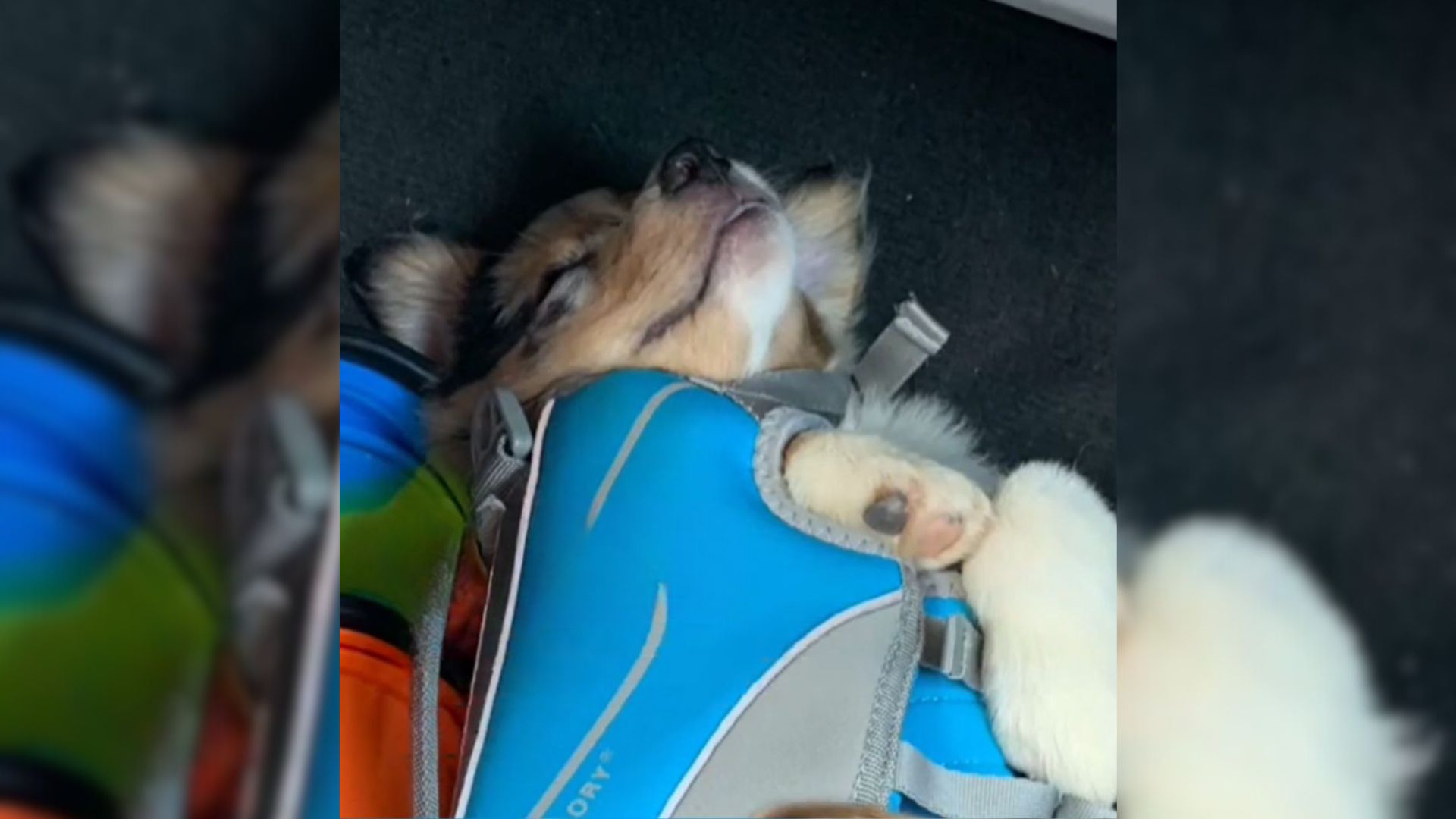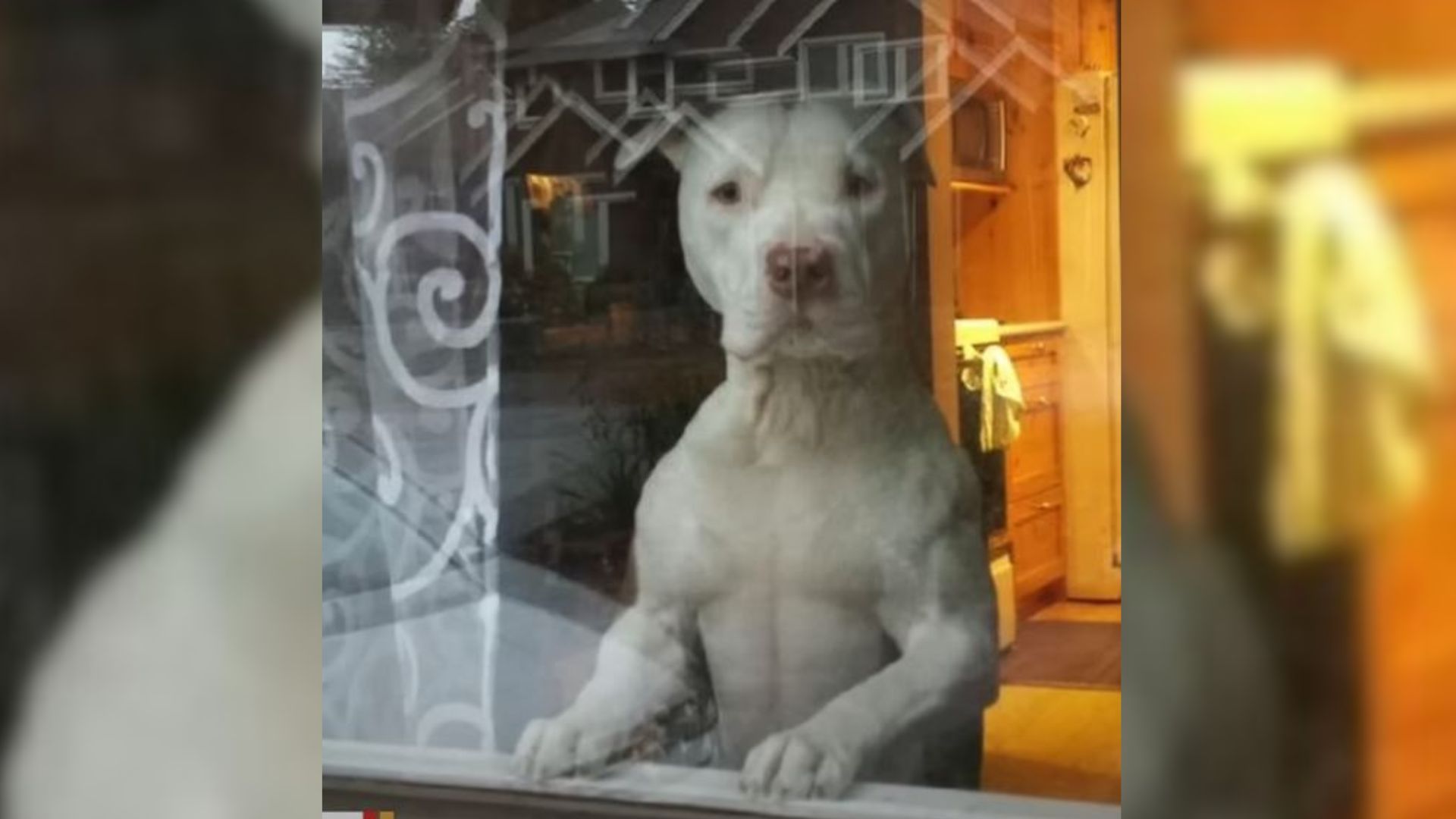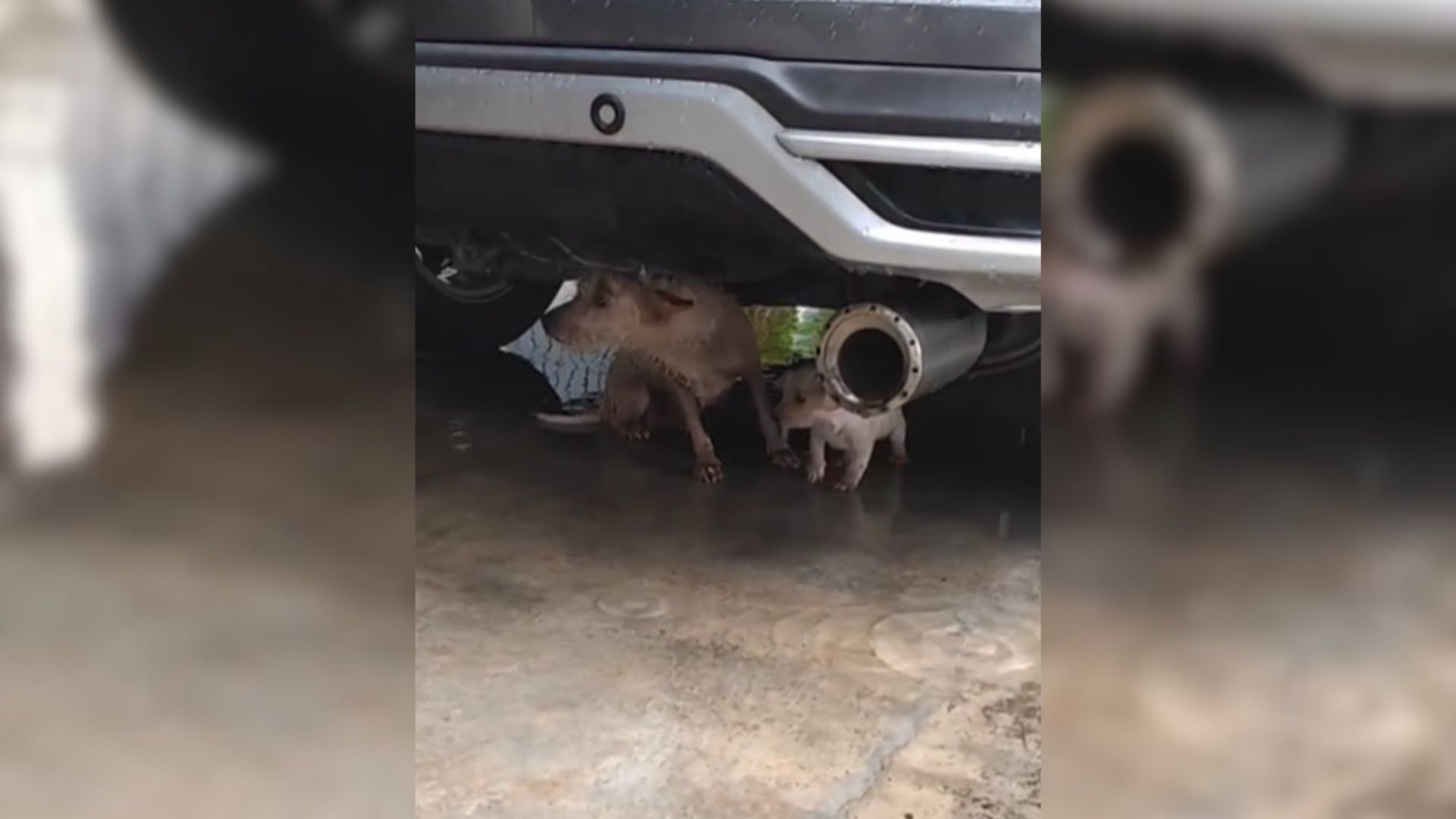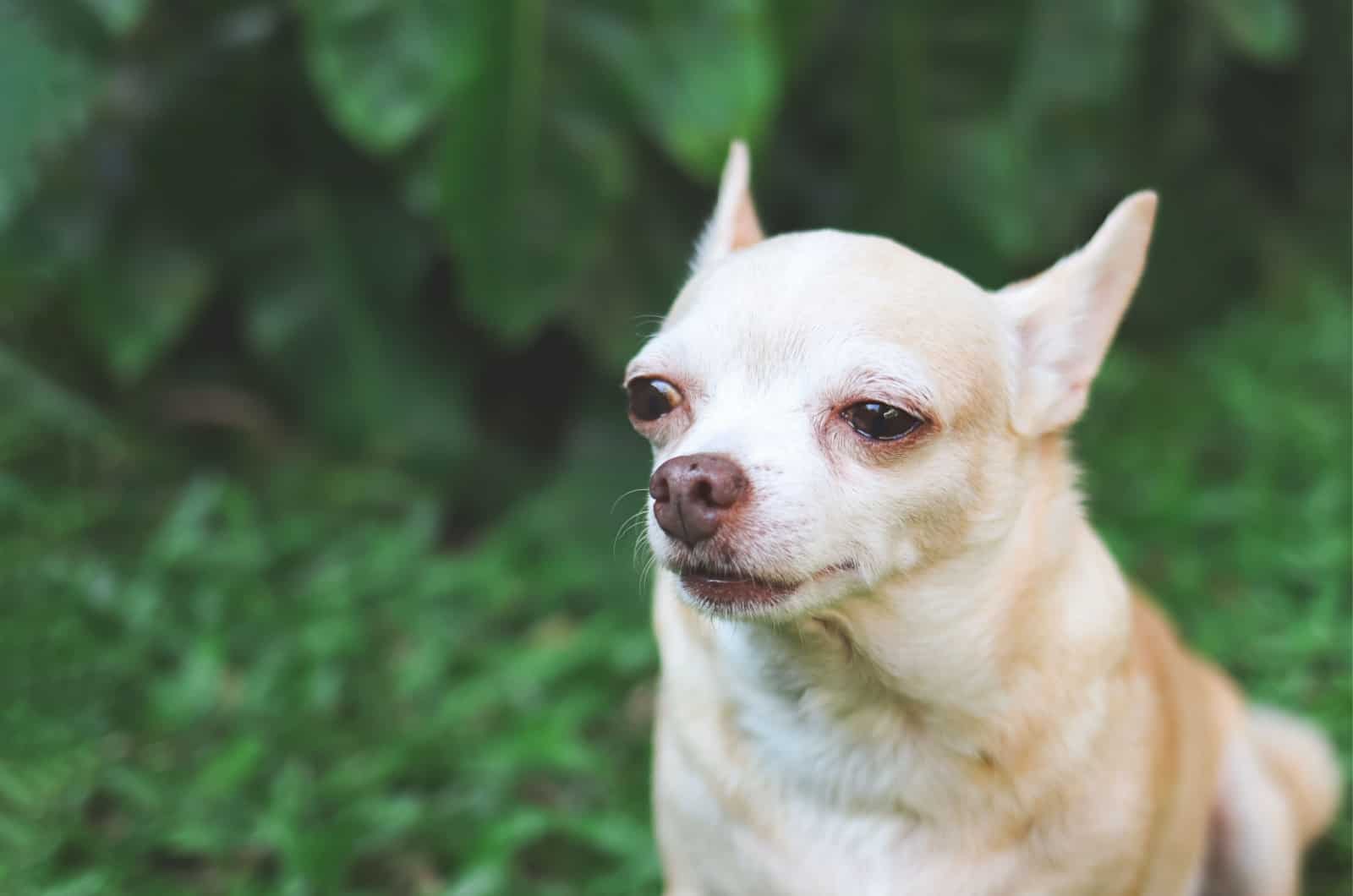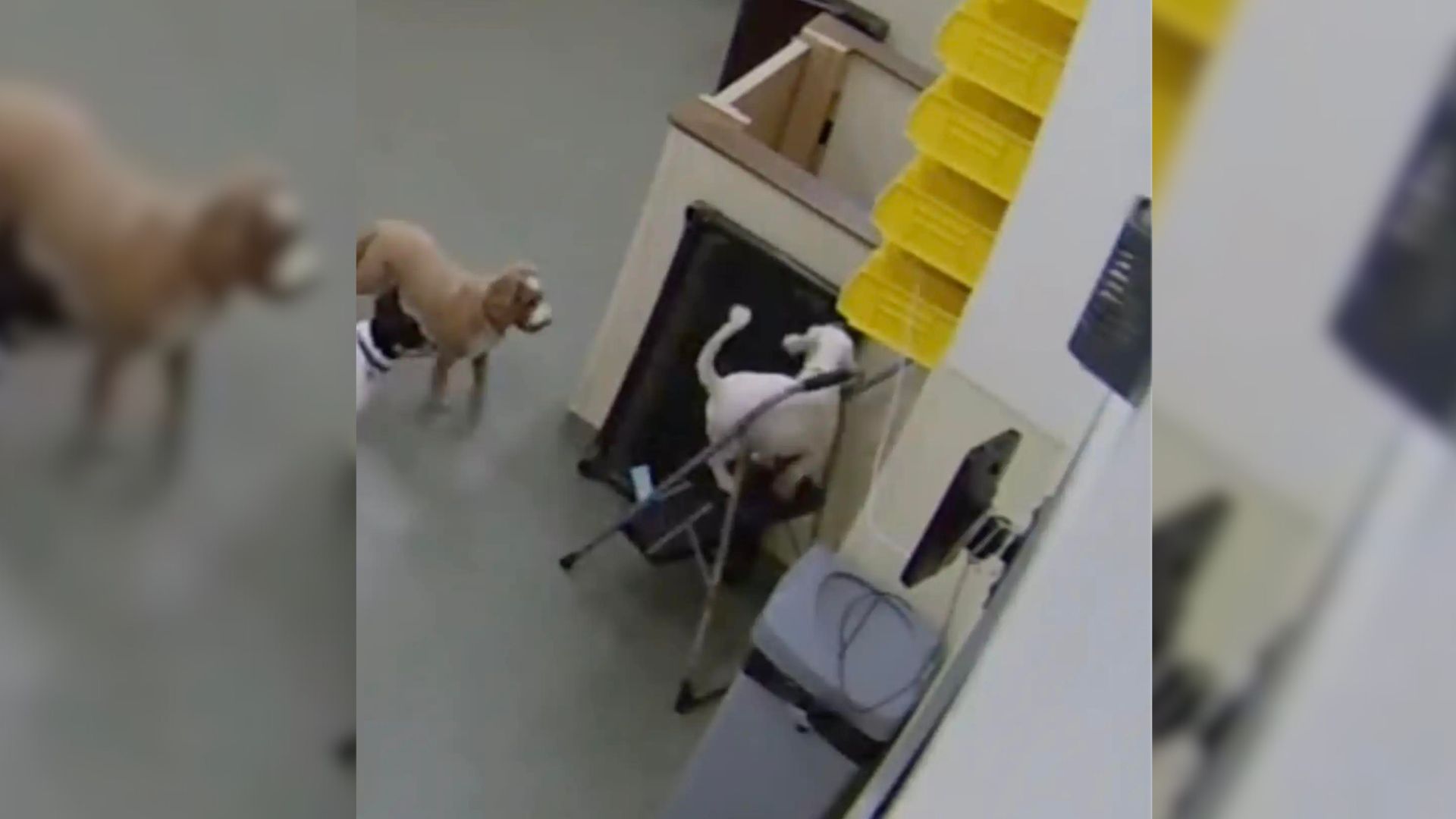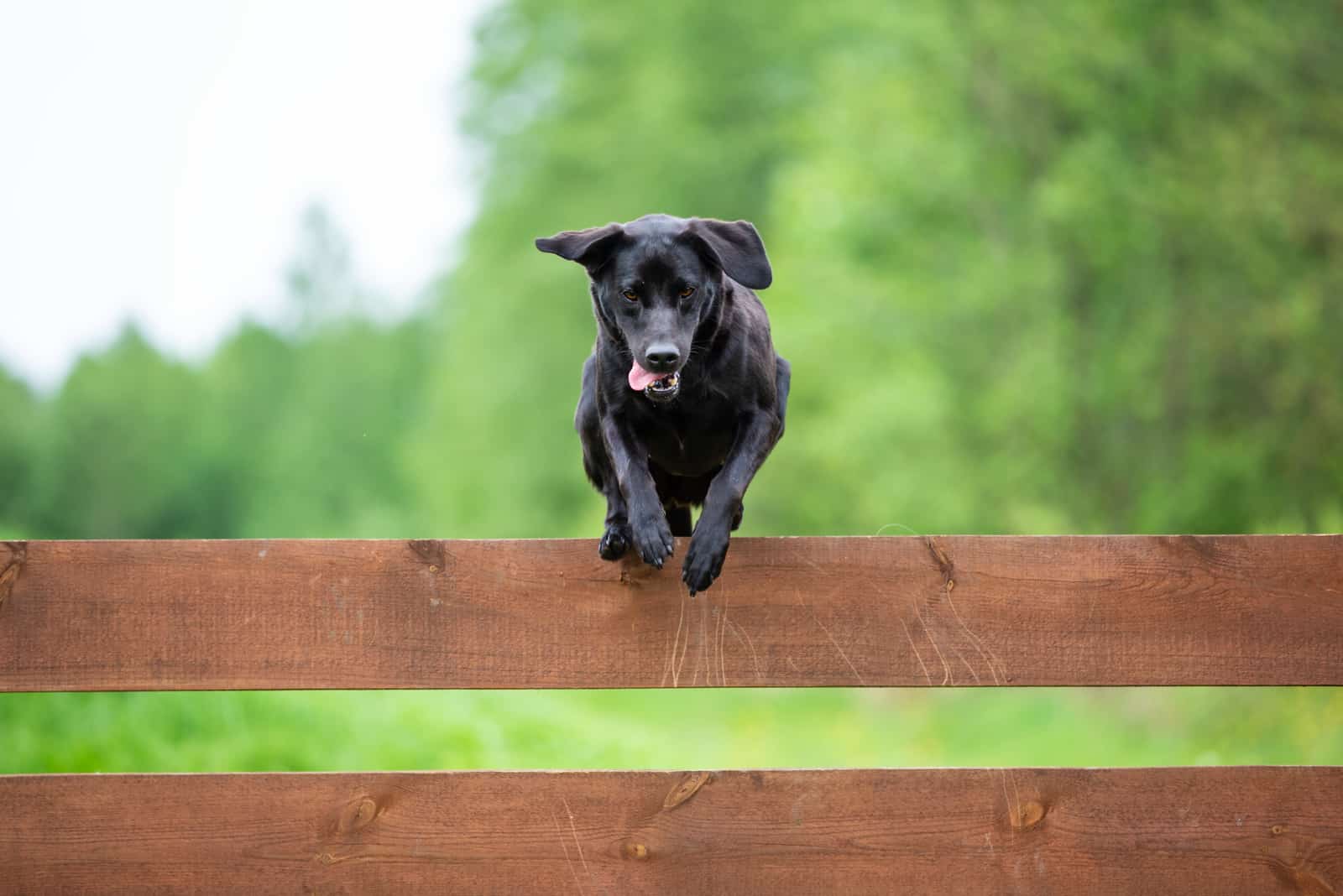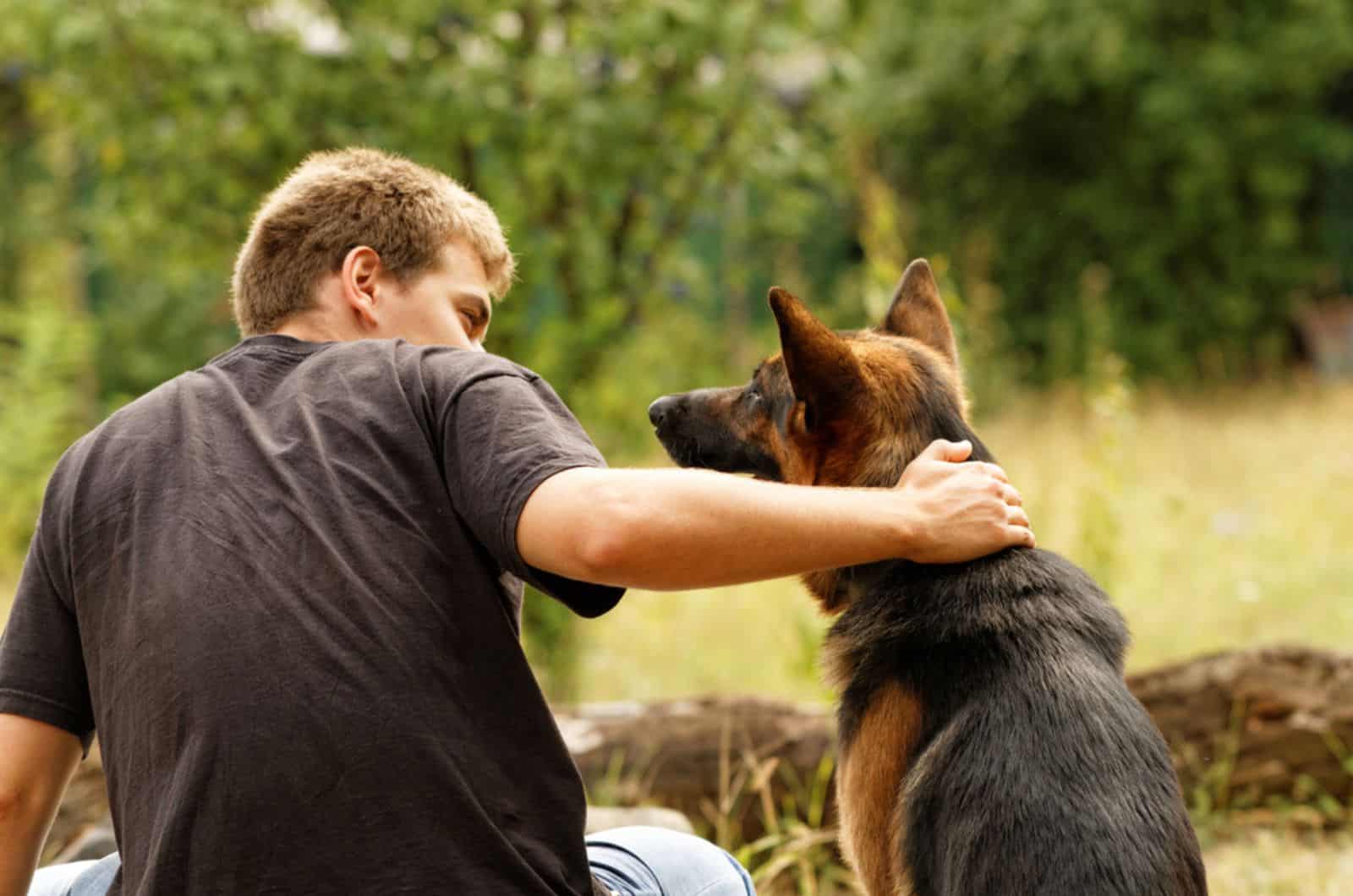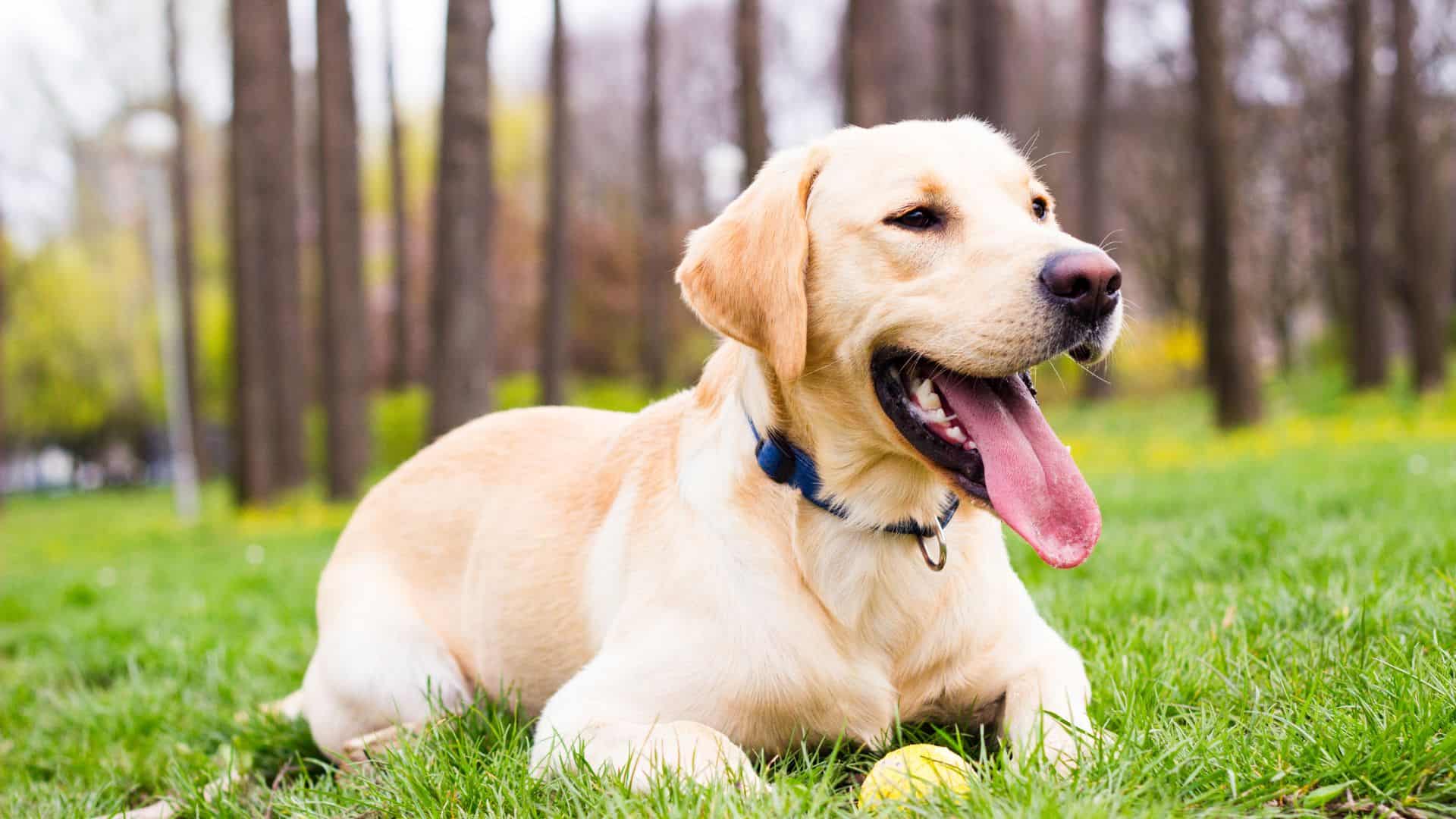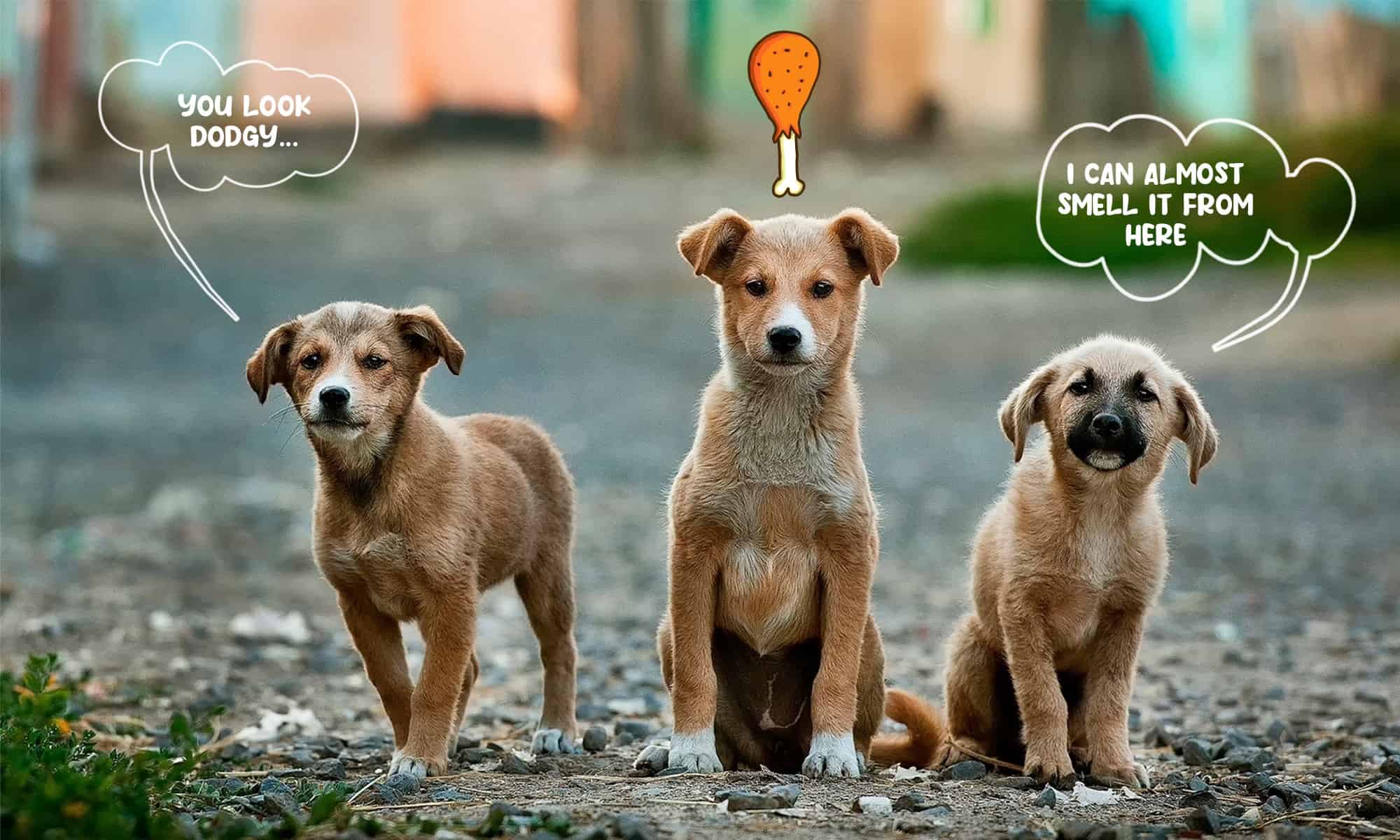When it comes to the question, “Are bears related to dogs?,“ it depends how far back you are willing to search. We can not say that bears and dogs are first cousins, but very distant cousins – yes. I must admit there is some resemblance in their appearance.
Some dog breeds can be huge, almost like bears. I have recently come across an article where some family in China accidentally adopted – a bear! You are probably wondering how on Earth did that happen?
Well, I was stunned, too, but there is an explanation. They found a cub somewhere in China’s wilderness and thought it was a young Tibetan Mastiff. You know how huge Mastiff breeds can get.
Nevertheless, this bear, as they thought it was a dog, lived there with them for TWO years not knowing what he actually was. Apparently, neither did the family know.
Finally, someone put two and two together and came to tell them it was not a shepherd dog they were keeping, but a huge, wild animal. Needless to say, they were very shocked.
There was another interesting story of bear and man somewhere in Europe. A man had a fight with a bear, armless. It was like a boxing match, and the man won! I bet he was not confused that he was dealing with a huge, wild animal.
All in all, dogs and bears do have some common traits, and they are related in some way. Let’s find out how strong that bond actually is and where that common point is in the evolutionary path. Stay tuned!
Are Bears Related To Dogs? Evolutionary Answer
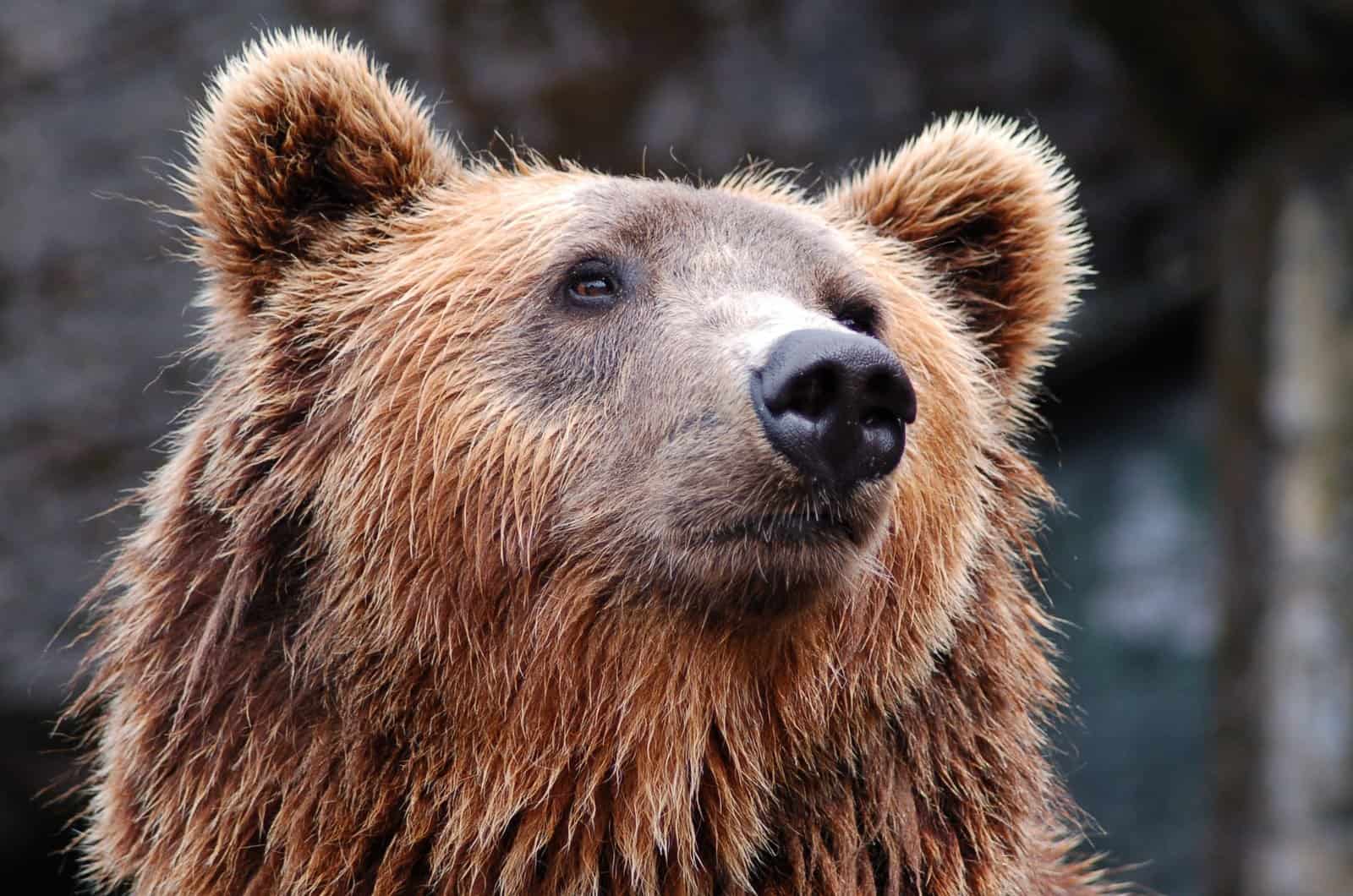
All living creatures on Earth were relatives at some point in the distant past, and they have some common ancestors. The same is with bears and dogs. Going thousands, even millions of years back, there was a moment when we all were a part of a colorful mixture of atoms and molecules.
As time passed by, that undefined mass started to differentiate, and the first simple organisms, such as amebas, were formed. Going further and further, more complex organisms started to develop, like bears, dogs, and humans.
Today, we have thousands of species that are more or less connected to each other. There is a system developed in order to easily navigate through the evolution of species. That is classification taxonomy based on Darwinian principles.
This taxonomy classifies living creatures in species, genuses, families, sub-orders, orders, classes, phylums, kingdoms, and domains. With this classification, we can track down the evolutionary road of bears and dogs, and try to answer the question: Are bears related to dogs?
How Close To Relatives Are Bears And Dogs?
To find out if bears are related to dogs, and how closely, it would be best to look at a table with the taxonomy of these two species. There are nine categories we can compare and see where that dividing point is in the evolution of bears and dogs.
| Dog | Brown Bear | |
|---|---|---|
| Domena | Eukarya | Eukarya |
| Kingdom | Animalia | Animalia |
| Phylum | Chordata | Chordata |
| Class | Mammalia | Mammalia |
| Order | Carnivora | Carnivora |
| Sub-Order | Caniformia | Caniformia |
| Family | Canidae | Ursidae |
| Genus | Canis | Ursus |
| Species | Canis familiaris | Ursus arctos |
We can clearly see in the table that dogs and bears are in the same domena of Eukarya. This means that both of them are multicellular organisms from the kingdom of Animalia, which means, as we can guess, that both are animals.
Both of them belong to the Phylum of Chordata, which means they are organisms that have spines. Both are mammals, which means they drink their mother’s milk after they are born.
Bears and dogs have very sharp teeth like many other species, and that is why they are in the Order of Carnivora. Their Sub-order is Caniformia. Caniform means being a carnivore that looks like a dog. Caniforms have a form like canines. Hey, this one is easy to remember!
Dividing Point Between Bears And Dogs
And, now we come to the moment where these two species separate, and the last point where bears are related to dogs. They belong to different families. Well, look at that. This one is easy to remember, too.
So, now we have two families that are related and have a lot in common. One is the Ursidae family. Let’s say it is like a family name for all bears, including giant pandas and sloths. The other one is the Canidae family, and the Canids include all dogs.
All bear species are from the Genus of Ursus, including Grizzly bears, Polar bears, Brown bears, Black bears, Teddy bears, and many other species around the world. Well, not really a Teddy bear – this one was a joke. In the best case, he would be an Ursus cartoonicus.
The Latin name for domestic dogs is Canis familiaris. All dog breeds belong to the Genus of Canis, from really small ones to really big bear dogs.
My eyes went fuzzy from all this classifying stuff. But, I get it now. Now, let’s see where these two different species meet each other.
What Are The Similarities Between Bears And Dogs?
Due to the fact that both of these species belong to the Caniformia Sub-Order, they have sharp teeth, which are adjusted for meat eating. But, both bears and dogs are facultative carnivores.
Being a facultative carnivore means that some species can eat meat, but not necessarily. These types adjust to life conditions, and also eat fruits and vegetables. That is why Winnie the Pooh eats honey in the cartoon.
It is not a secret that some dogs look like smaller versions of bears. Some look like teddy bears you buy on Amazon. The reason for that is that both of them come from the same niche of Caniformia.
As earlier mentioned, Caniformia animals resemble dogs. These animals, including dogs and bears, have a long snout and non-retractable claws. Dogs sometimes have a long tail while bears do not.
10 Huge Dog Breeds That Resemble Bears
Well, there is probably a good reason why people ask the question: Are bears related to dogs? Some dogs look much like bears. There are similarities in size, fur, and color.
It is not only that these dogs have a physical appearance that resembles bears, but they can also be as intimidating as these wild animals. There are a few breeds that can serve as evidence to support the thesis that bears and dogs are distant relatives indeed.
1. Newfoundland
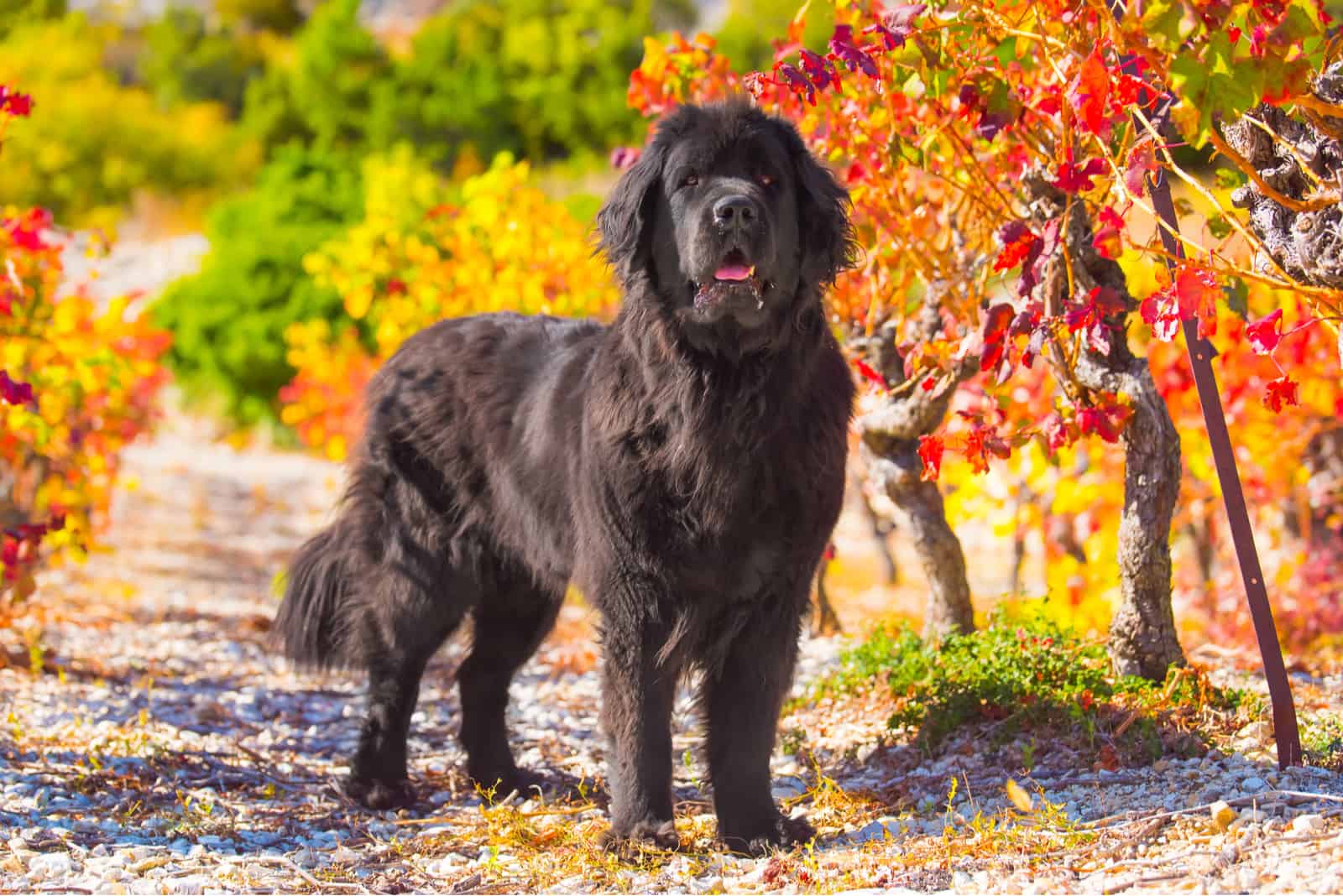
The Newfoundland has perhaps the most resemblance with a bear. This is due to the quality and colors of his coat. It is big, thick, furry, and comes in all bear colors.
There are even more similarities between baby Newfoundlans and bear cubs. There is practically no difference between those two, and people often get confused. Just look at their growth chart and you’ll know what I mean!
The Newfoundland is a strong working dog whose main role was to take care of sheep and protect them from predators. These predators were usually wolves, but I bet there were a few bears, too.
2. Karelian Bear Dog
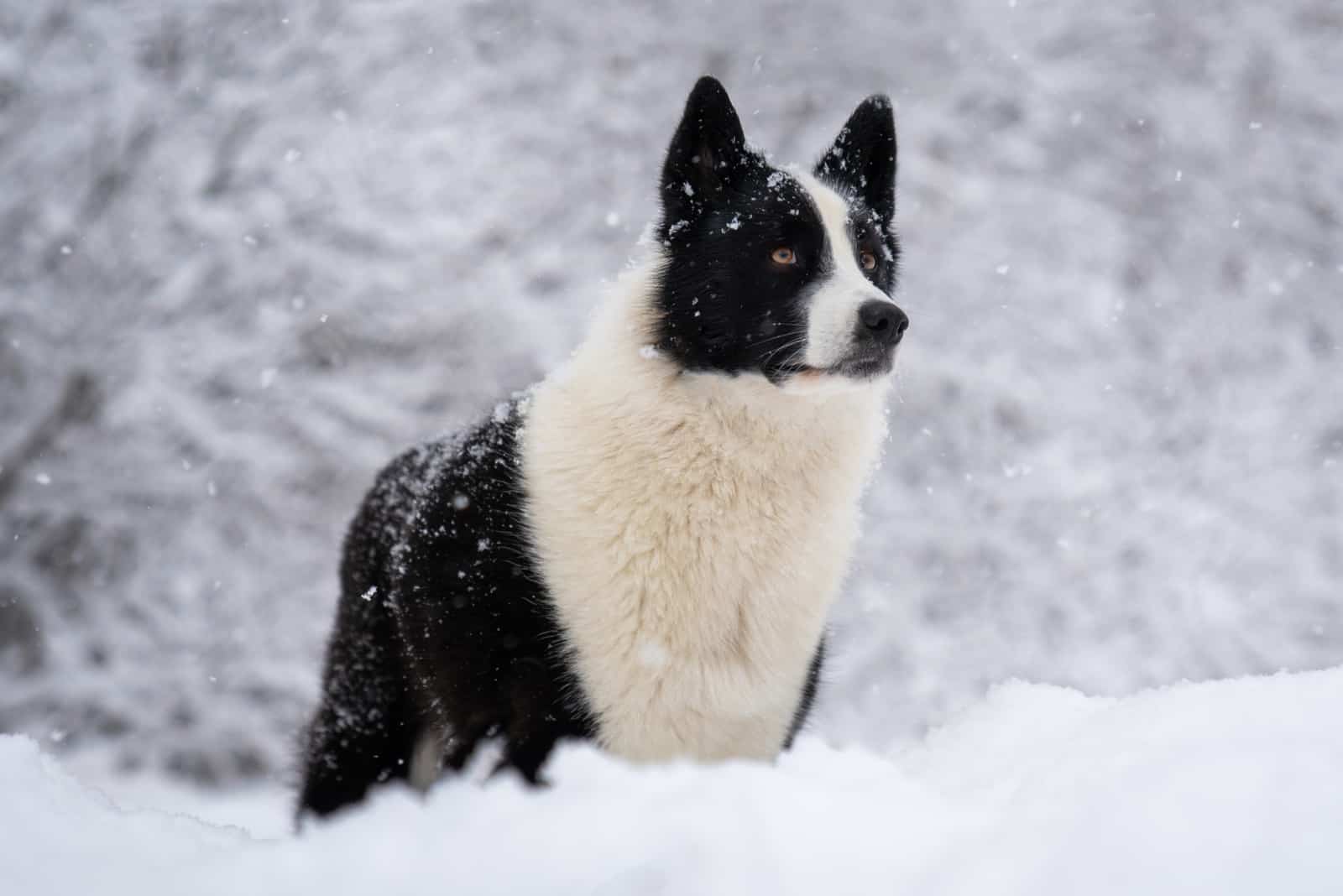
Karelian Bear Dogs are probably the main reason why people ask whether bears are related to dogs. But, Karelian Bear Dogs are dogs. It is a breed from Finland and Russia.
The role of this dog was to hunt and guard livestock, and to be a decent watchdog. It is one of the most popular dog breeds in Finland, and it is often black and white.
Since there is a lot of snow in the area where Karelian Bear Dogs live, he was also used to pulling sleds in cold Finnish winters.
3. Akita
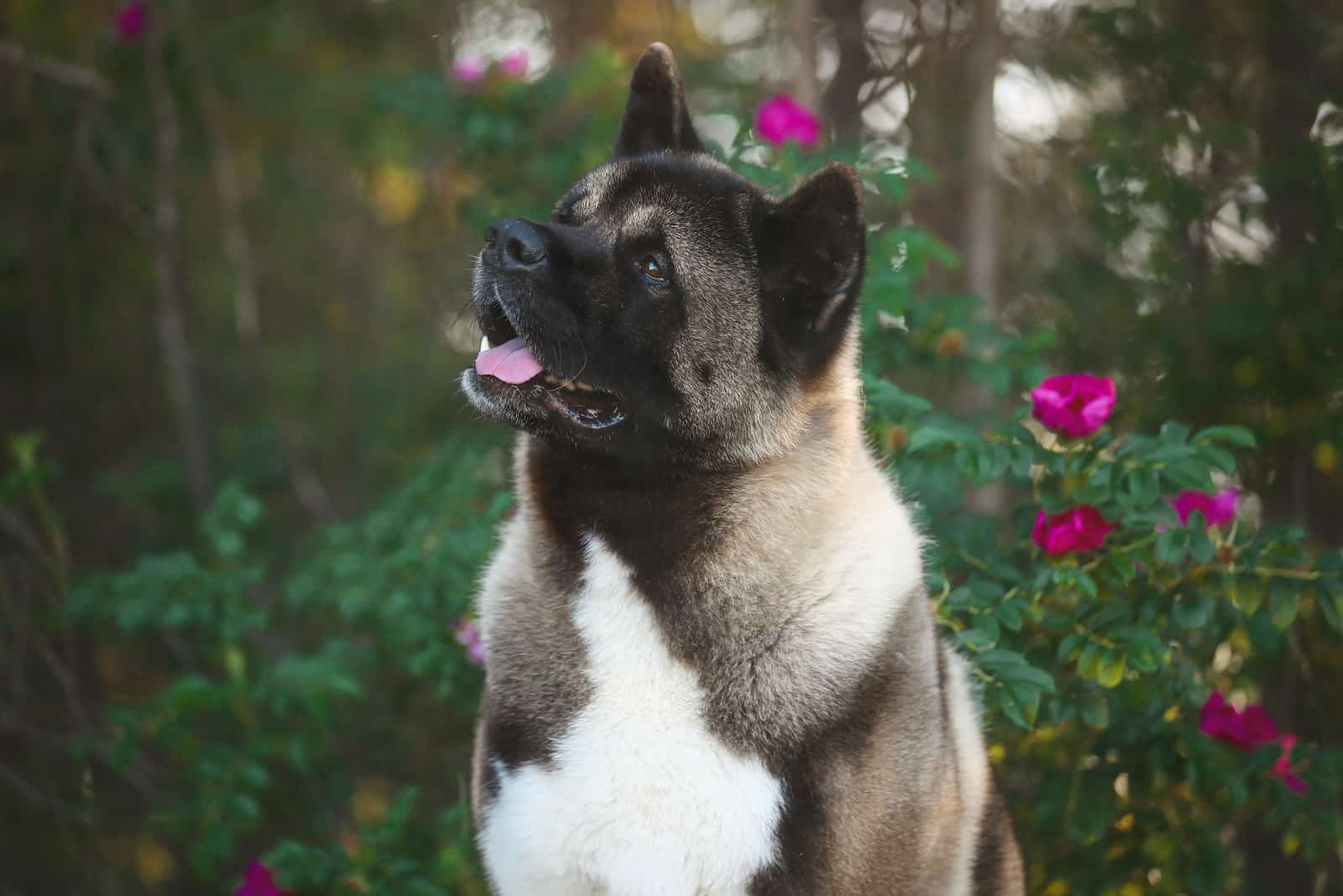
Baby Akitas resemble Polar (Teddy) bears. They can have many colors, but white Akitas are especially fluffy and adorable. They have cute facial expressions, and all you want to do is take it and smush it. He is that adorable.
But, that adorable little puppy soon gets to be a big and intimidating, fierce dog. He no longer has that teddy-bear appearance, but a big bear resemblance.
He can reach up to 100 pounds, and grow up to 26 inches. He is a dog with an attitude, and you should know your way with him.
4. Chow Chow
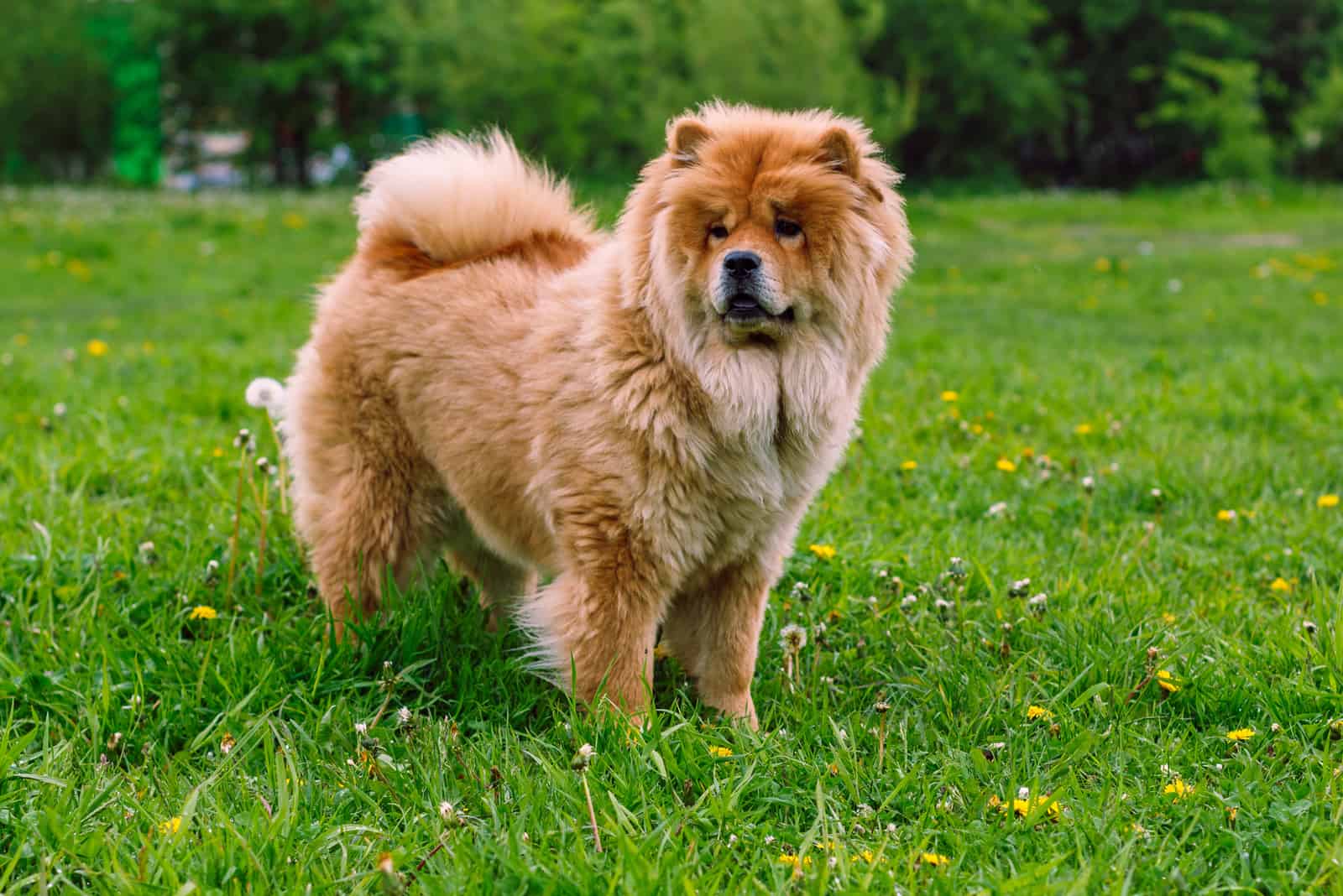
The Chow Chow is a specific dog. He has a very interesting trait that other dogs do not have. This furious and fierce being has a blue tongue.
It is a Siberian dog, but from China. This means that he is very furry and that he sheds a lot. This is practical considering the temperatures in that part of the world, along with the elevation.
Though he is not as big as a Mastiff or a Shepherd, he is not any less terrifying. Do not be deceived by his cute looks. This dog has an attitude. A lot of it.
5. Tibetan Mastiff
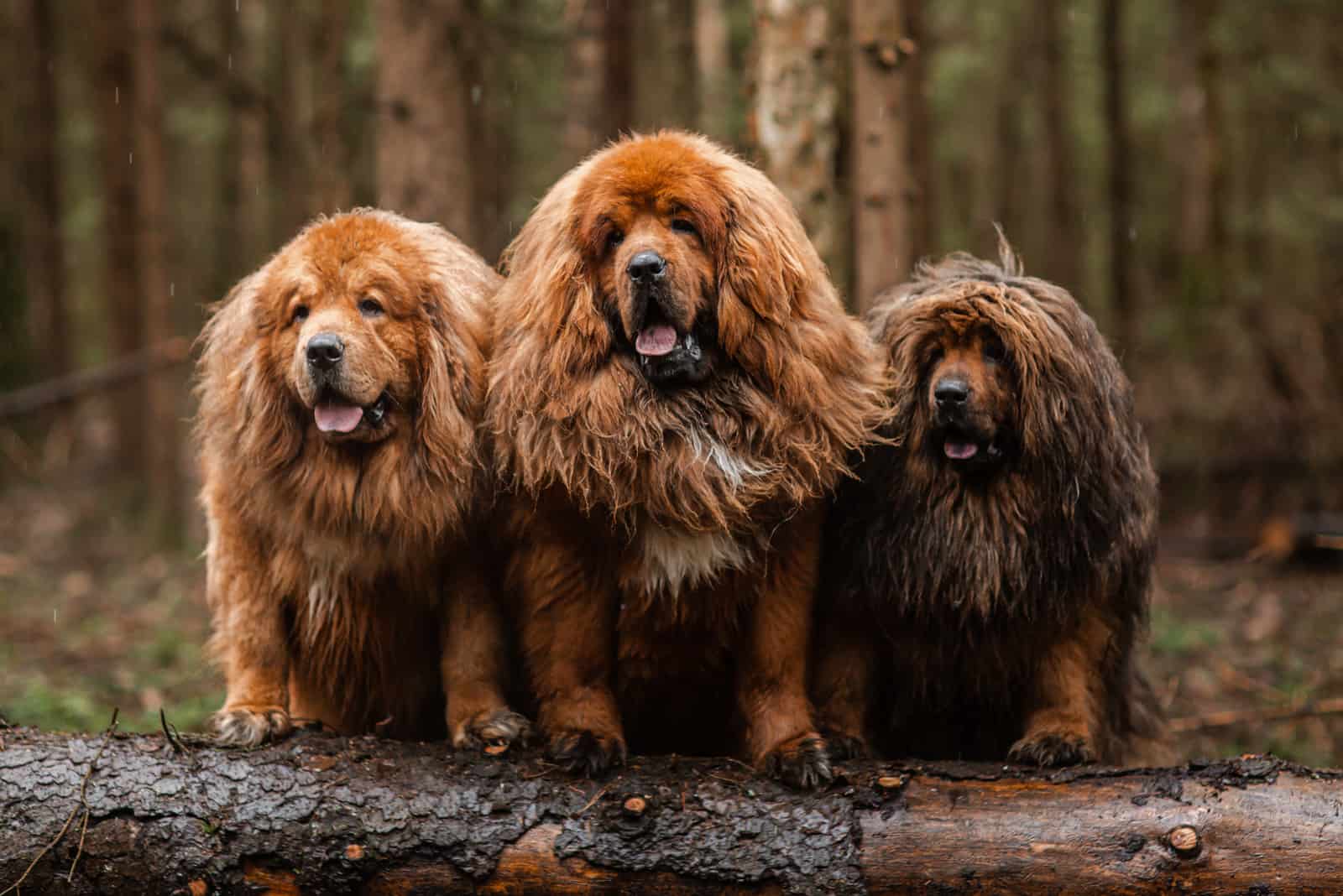
The Tibetan Mastiff is a huge watchdog and guard dog. His big body, with big fur, makes him both adorable and intimidating at the same time.
He loves to protect, which may be a little scary to the person who has just met this giant with a giant heart. That is why he needs some time to get used to strangers.
The Tibetian Mastiff originally comes from the Tibetan plateau. Well, certainly you are not surprised, as his name says so. He has probably encountered Asian black bears in the middle Asian wastelands.
Related: 13 Best Tibetan Mastiff Breeders In The U.S.
6. Great Pyrenees
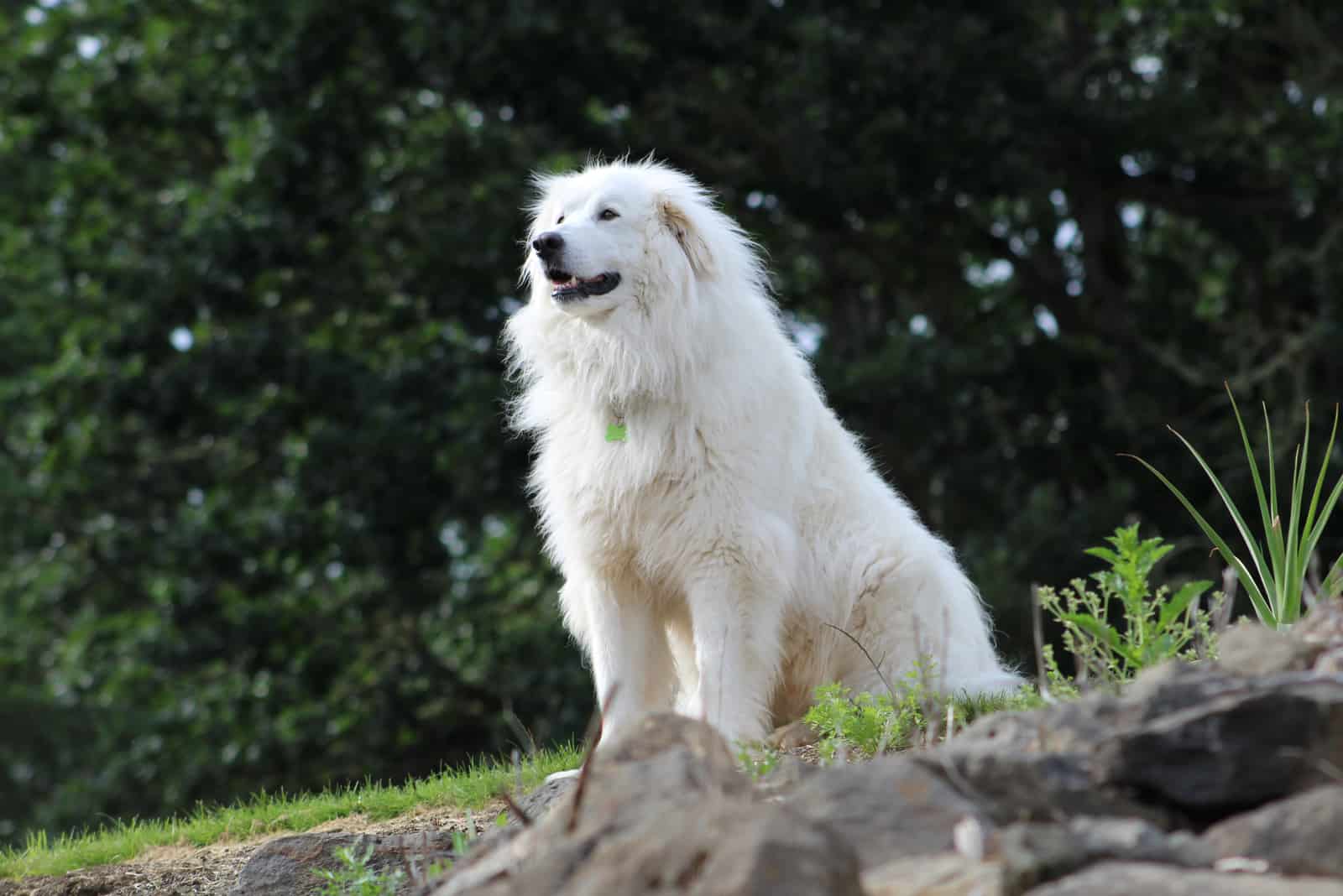
Well, this is another huge dog. It reaches up to 120 pounds, which is a lot, but it is no wonder due to his role as a responsible guard dog and shepherd.
This is a dog that originally lived high in the mountains, the Pyrenees mountains, to be precise. That is why we call him this. This means he has thick and bushy hair because of the cold weather up in the mountains.
If you see a Great Pyrenees from far away, you will probably be scared for a moment. This dog is all white and huge. If there is snow around, it is easy to mistake him for a Polar bear.
7. Bush Dog
The Bush dog is like a small version of a brown bear. The color of his coat, the quality of his fur, the expression of his face – everything on him but his size screams that it is a small bear.
These traits did nothing but harm to this breed. Due to the fact that he looks like a bear, occurrences get fatal for this dog. And, now he is almost extinct.
I hope that people will learn better about this breed for it is neither intimidating nor cruel. It would be a shame to lose it.
8. Sarabi Dog
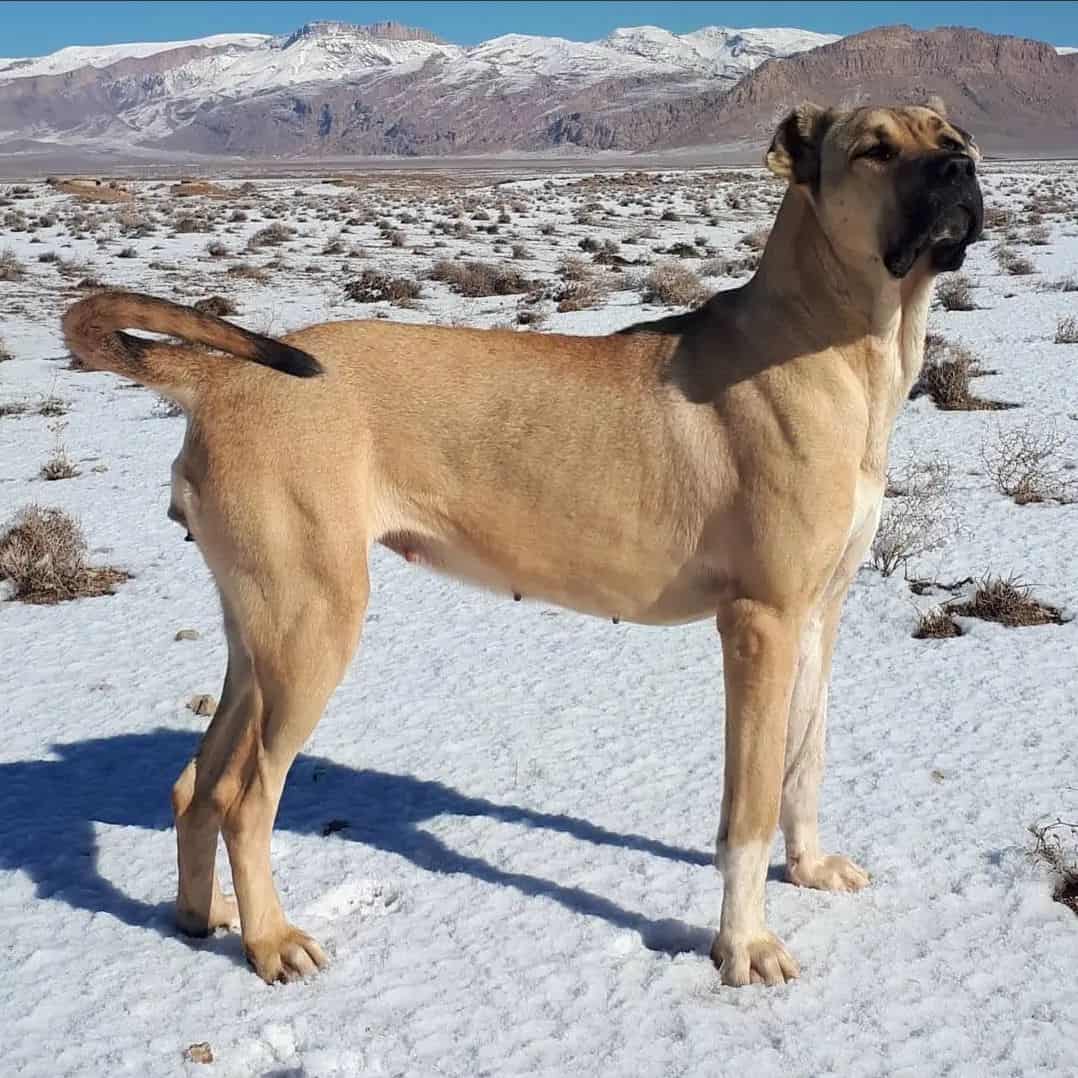
Photo from: @sarabi.dog_persia
This is another dog of the Mastiff line, and one of the strongest dog breeds out there. He is so strong that shepherds would use him to fight wild bears in order to protect sheep flocks.
The Sarabi dog can reach up to 200 pounds, and grow up to 35 inches. Sometimes, he has a dark-colored coat; sometimes light, but both remind me of a bear.
This is another dog in the line of fearlessbreeds that has no problem confronting much larger animals. And, he certainly would not fear his master. You must earn his respect.
9. Leonberger
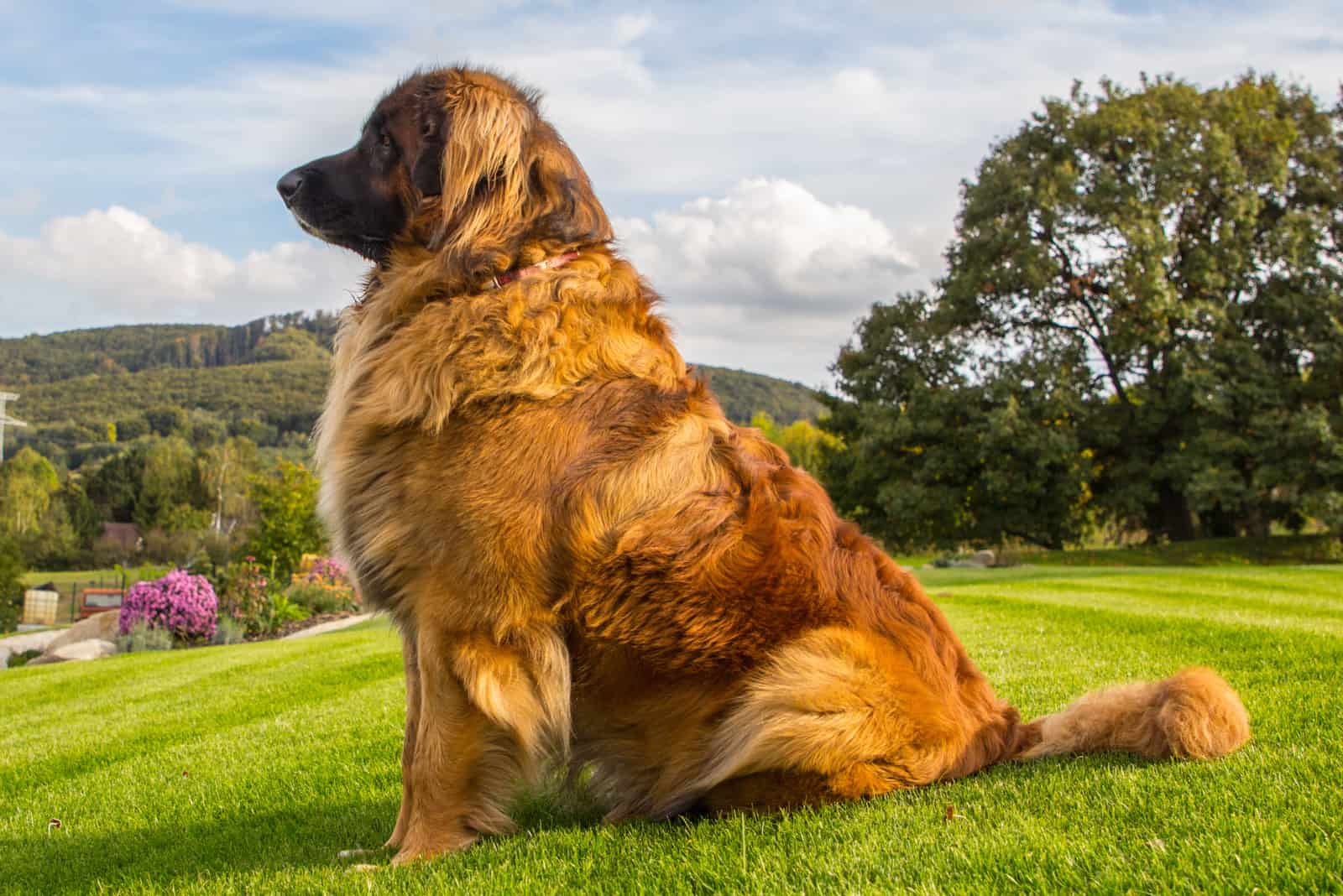
The Leonberger is a huge dog, and a strong one, too. It can have a weight of 200 pounds. Even a bear would not be ashamed of that. Definitely an impressive breed.
It is also furry. He resembles a bear not only in size, but also in colors. His beautiful coat is thick and fluffy. This dog is caring, but also intimidating.
The Leonberger is a very strong dog. His role in the past was to watch and guard sheep and livestock. But, that was not his only role. His main role was to pull carts around, which is something that usually horses do.
10. Caucasian Shepherd Dog
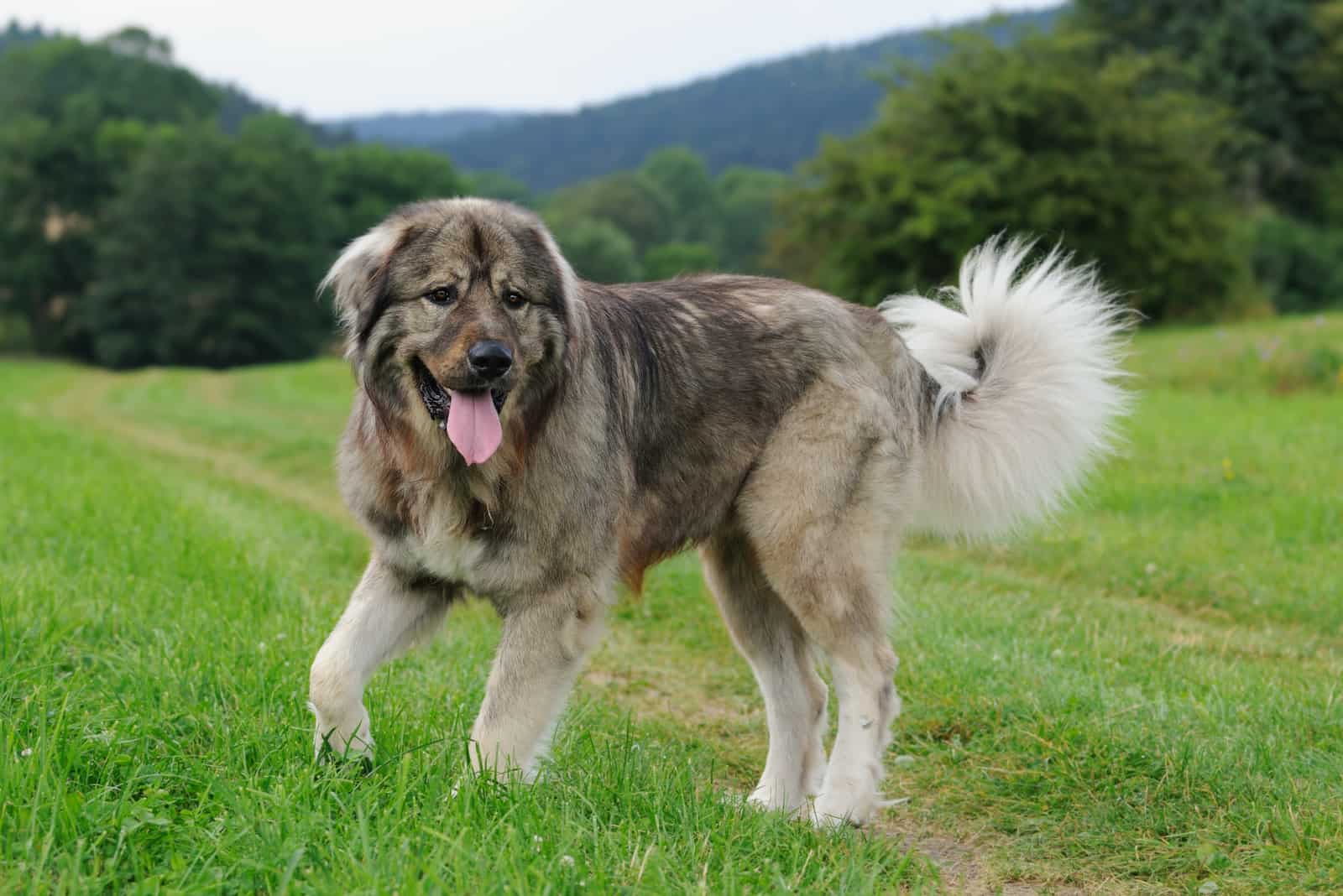
He is as fierce as he sounds. This dog from Eurasia is truly a huge breed. He reminds me of a bear not only with his size, but also with his fur and color, and intimidating personality.
The Caucasian Shepherd Dog can reach up to 200 pounds, which is not small if I may say. This dog is not really fearful, but his owner might be. It is a dog for a firm and confident owner who can show it who the boss is.
As his name says it is a shepherd dog. This means a lot of running, training, jumping, and overall outdoor activity. Do not skip this part because unused energy can easily turn into nasty behavior.
FAQs
Are Bears Closer To Cats Or Dogs?
Huh – are bears related to dogs or are they more related to cats? This one is very tricky. Since the bear is not too close to any of those species, it would be best to compare evolutionary lines.
We have already described the taxonomy of bears and dogs, and now we will put down the taxonomy for cats just to make it easy to track down moments of separation.
| Dog | Brown Bear | Cat | |
|---|---|---|---|
| Domain | Eukarya | Eukarya | Eukarya |
| Kingdom | Animalia | Animalia | Animalia |
| Phylum | Chordata | Chordata | Chordata |
| Class | Mammalia | Mammalia | Mammalia |
| Order | Carnivora | Carnivora | Carnivora |
| Sub-Order | Caniformia | Caniformia | Feliformia |
| Family | Canidae | Ursidae | Felidae |
| Genus | Canis | Ursus | Felis |
| Species | Canis familiaris | Ursus arctos | Felis catus |
Well, by comparing these three columns, we have come to the conclusion that bears are more dog-like than cat-like. When you look at the table, the last time that these three are together is in Order since they are all carnivorans.
Already in the Sub-Order, cats divide on the Feliformia, along with some other cat-like species such as hyenas, cheetahs, meerkats, and lions.
On the other hand, bears and dogs are in the same Sub-Order group of Caniformia, along with many more different species. You can find raccoons, weasels, coyotes, jackals, otters, red pandas, and skunks here. It is a very colorful company.
So, considering the evolutionary line, bears should be closer to dogs than cats. I mean, the name says it. Bears belong to the Sub-Order, Caniformia, which means dog-like animals. But, it is a very tight win for dogs here.
What Is The Closest Relative To Bears?
The closest bear relative was a surprise for me. Considering all this talk about the taxonomy of species in the text above, we have concluded that bears are dog-like creatures. In other words, they are part of the Sub-Order, Caniformia.
When we take it down even further, on the level of Infraorder, bears belong to Arctoidea. This is a clade of mammals that eat meat – carnivores, let’s say.
The Infraorder of Arctoidea includes the Family of Musteloidea. Those are red pandas, raccoons, weasels, and skunks, for example. There is also the Ursidae Family here. This includes all kinds of bears.
It also includes the Family of Pinnipedia, which are sea lions, walruses, and seals. Also, some extinct dog-bear species like Hemicyonidae are included.
Now, we can say that close relatives of bears include some water animals like seals and sea lions, and some small animals like weasels and skunks. Huh, I would have never thought. Nature is sometimes really strange. Though, remember that these animals are not really bears, but they share the same Infraorder.
Can A Bear Breed With A Dog?
Answer to this ethically dubious question is technically, yes, but actually, no. Breeding between species is generally not successful. There are some exceptions, for example, when you breed a horse with a donkey and you get a mule.
Usually, if they succeed in producing offspring, that offspring is almost always sterile. But, processes in nature are never black and white, and there are always exceptions to the rule.
But, generally speaking, animals tend to mate within their species, and it is humans who force breeding between species out of curiosity.
When it comes to bears and dogs, the genetic differences are too big. The common ancestor of the dog and the bear is too far in the phylogenetic line. Another problem is the number of chromosomes in both species.
There are 74 chromosomes in the bear’s genotype, while dogs have four more chromosomes, which is 78. That is like a lot when it comes to this kind of talk.
Animals that have huge differences in the number of chromosomes are commonly not successful in producing offspring. They have to be much closer in relation to succeed, such as dogs and wolves.
There are some obscure reports with pictures of bear-dog crossings somewhere in Siberian havoc. But it seems that there is no credible evidence for it, and it is not scientifically proven.
Do Bears Share DNA With Dogs?
Having a common ancestor and coming from the same order means that bears and dogs do share a part of their genome. You may ask, What is their common ancestor?
When we go back far enough in history, somewhere between 32 and 62 million years back, we will find Miacids. Miacids were mammals that were some sort of grandparents to all the Carnivoras.
They were exploring the Earth and evolving for about 28 million years, which is a pretty long time. They owe their success to their adaptability and to hunting small animals. And, they mated a lot.
This helped them to spread all over the world, from Europe and Africa to North America. Since there were a lot of them, and they lived in different conditions, Miacids started to develop in different species. That is why today, we have dogs, bears, cats, and many other species.
What Is The Best Way To Tell If A Bear Is Related To A Dog?
There are a few ways to tell if a bear is related to a dog. One is to track down the evolutionary path of these two species and see where the meeting point is. The last time they were in the same category was in the Sub-Order of Caniformia.
There is also the possibility of checking out the genome and finding how much genetic material both of them share. If they share DNA in a major measure, then it is likely that those species are very close. If that is not the case, then they are most likely distant.
Sometimes, there is evidence in the form of fossils or bones, or some artifact from the past that remained intact. This evidence is often the remains of a common ancestor, which is called a link.
Final Verdict
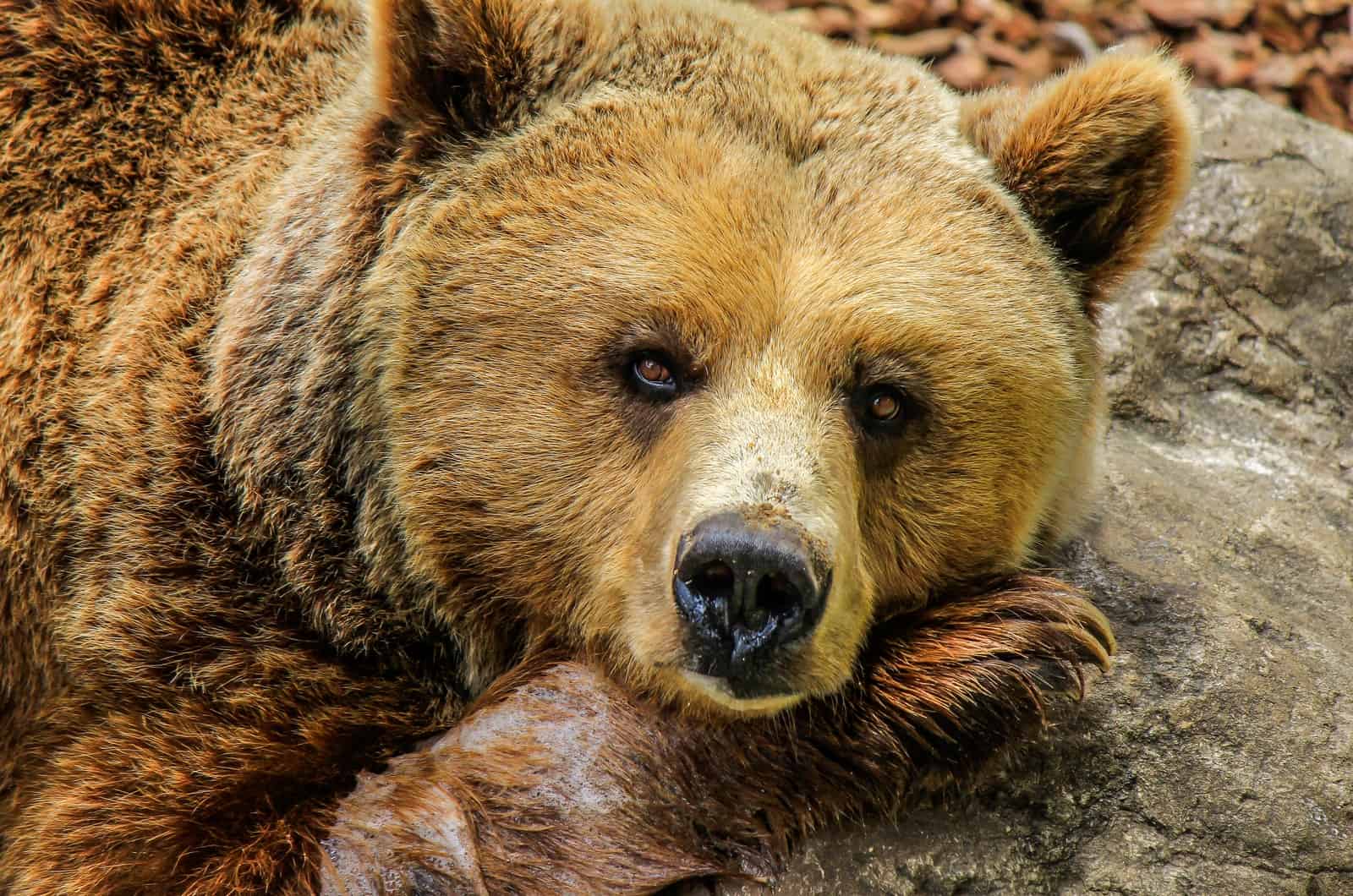
Are bears related to dogs? We can conclude that they are not related closely, so the answer would probably be no. But, they do have common ancestors far back in the history of evolution.
Both species are, like many others, part of the Order of Carnivora and the Sub-Order of Caniformia. This means that both of them are animals that look like dogs. That is what the word, Caniformia, represents, and we can agree that sometimes they look alike.
Many dog breeds have physical traits that remind us of bears. This is often their size, color, fur, or facial expression. And, not to forget attitude and intimidating fierce nature. Some dogs can be as strong as bears, and the tallest dogs can be as large as some bears.
All in all, even though there are many similarities, still, it is not enough to state a direct connection. In the best case, they are very distant cousins that rarely see each other, and when they do, it is not a pleasant meeting.
Read Next: 31 Wolf Like Dog Breeds: Finest Collection Of Fierce Dogs

